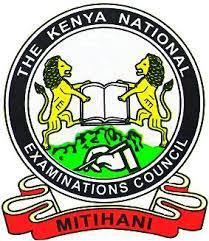
THE KENYA NATIONAL EXAMINATIONS COUNCIL
DIPLOMA IN BUSINESS MANAGEMENT
MODULE III
BUSINESS EDUCATION SINGLE AND GROUP CERTIFICATE EXAMINATIONS
STAGE III
ORGANIZATION THEORY AND BEHAVIOUR
1. (a) The human relations theory is one of the approaches to understanding organization theory and behaviour. Outline five criticisms that may be cited against the application of the theory in this regard. (10 marks)
(b) Explain five ways in which conflicts may be beneficial to an organization.
(10 marks)
2. (a) Outline six characteristics that organizational goals should possess. (12 marks)
(b) Explain four perceptual distortions that may influence the way individual employees, perceive others in an organization. (8 marks)
3. (a) Highlight five negative effects that organizational politics may have on a business enterprise. (10 marks)
(b) Employees at Mwendo Limited have been exhibiting increased levels of stress. Explain five measures that the management should take to assist the employees cope with the stress. (10 marks)
4. (a) Highlight six external factors that may make it necessary to introduce change in an organization. (12 marks)
(b) Different businesses adopt different types of organizational culture. Outline four types of such culture. (8 marks)
5. (a) An organization whose employees are stressed may suffer in different ways. Highlight five such ways. (10 marks)
(b) Outline five features that effective workgroups should exhibit. (10 marks)
6. (a) Explain five political strategies that managers may adopt in an attempt to increase their power in an organization. (10 marks)
(b) Describe the stages through which groups go through during their formation. (10 marks)
7. (a) Give five reasons that may make employees resistant to change in an organization. (10 marks)
(b) Outline five factors that may determine the type of organizational culture to be adopted in a business firm.
